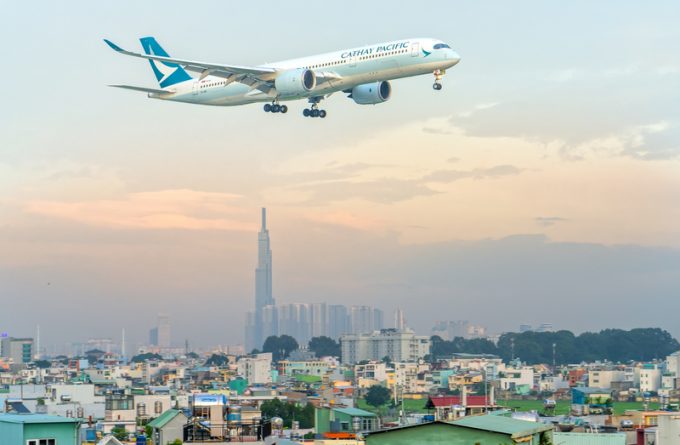Semiconductors could compensate for air freight's lost ecommerce traffic
The future of ecommerce by air may be in doubt – but the semiconductor industry, ...

Cathay Pacific is facing retaliatory sanctions on its flights to the US.
The American Department of Transportation (DoT) says Covid-19 restrictions in Hong Kong are unfair and create a tilted playing field.
The Hong Kong government implemented new Covid-19 restrictions on 20 February that include a mandatory 14-day quarantine for airline crews based in the territory – both on passenger and freighter aircraft – returning after an international layover.
While this actually hits Hong Kong-based carriers the most, the US DoT is attacking ...
Transpacific sees first major MSC blanks as rates fall and volumes falter
'It’s healthy competition' Maersk tells forwarders bidding for same business
White House confirms automotive tariffs – 'a disaster for the industry'
New price hikes may slow ocean spot rate slide – but for how long?
Shippers snap up airfreight capacity to US ahead of tariff deadline
Supply chain delays expected after earthquake hits Myanmar
Tighter EU import requirements proving 'a challenge' for forwarders

Comment on this article